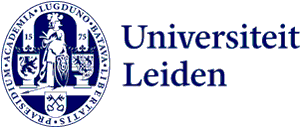
Executive Board visits institutes: 'Our programmes need to be preserved for both the Netherlands and Europe'
From human rights in Sudan to a new cult of heroes in China. During the board members' visit, the Institute of Private Law and the Institute for Area Studies clarified their social relevance in no uncertain terms. What's happening here in education and research?
On Tuesday 26 August, numerous researchers gave brief yet powerful presentations about their work. Their examples revealed how socially relevant and often interdisciplinary their research is. Both institutes emphasised the crucial importance of sufficient numbers of students and adequate funding. Vanessa Mak, Academic Director at Leiden Law School's Institute of Private Law, kicked off proceedings. Her institute offers courses in a wide range of legal specialisations, such as civil law, child law, notarial law, health law and company law. She also referred to the strong links with legal practice; for example, students receive guest lectures by lawyers and judges.

Training courses for students and professionals
This connection with legal practice is also reflected in the advanced master's programmes for ambitious Dutch and international professionals who already have a few years of work experience. Ewan McKendrick, Professor of Anglo-American Private Law, explained how these degree programmes boost international knowledge and are financially significant for Leiden Law School. He argued that for this reason, we need to do our best to ensure that this target group continues to choose Leiden University. Rector Hester Bijl agreed wholeheartedly: 'Leiden Law School and the Administration and Central Services department have to work closely together when it comes to recruitment.
'Great to see how considerably the faculty has broadened its scope.'
Conflict zones
Afterwards, several young PhD candidates took the floor. Lucy Opoka spoke about her research in the field of international law about children in conflict zones, using the situation in war-torn Sudan as a case study. Jan van Staalduinen is researching the liability of medical AI systems. In doing so, he works closely with partners such as the LUMC. Vice Rector Erwin Muller, who was Vice Dean of Leiden School 20 years ago, was impressed. 'It's great to see how considerably the faculty has broadened its scope. I also spot many interesting opportunities for collaboration with Campus The Hague.'
Peer feedback for PhD candidates
Timo Kos, Vice President of the Executive Board, asked about the support available within the institute. Two PhD coaches – Katrien Klep and Ekaterine Pannebakker – gave a very concrete example. They supervise peer feedback groups where PhD students have the opportunity to share their experiences and encourage one other. This kind of group would also be very useful for PhD supervisors, so that they can share their experiences about effective supervision, as Professor Ton Liefaard pointed out. The Board members responded with enthusiasm, noting that all faculties can take inspiration from examples like these.
Visiting Humanities
Afterwards, the Board members and Professor Muller visited the Leiden Institute for Area Studies (LIAS) at the Faculty of Humanities. In the Herta Mohr building, it was also clear to see how relevant the research and education here is. The institute houses degree programmes in the fields of Asia, the Middle East and religions. Academic Director Ab de Jong emphasised the importance of various programmes such as Sinology, Korean Studies and Egyptology, which are not offered anywhere else in the Netherlands. Even within Europe, various fields of study are scarce or even unique in terms of university offerings. 'We need to stop calling our programmes "minor languages",' said Professor de Jong. After all, the languages studied at LIAS represent around 60% of the world population.

The care of babies
Various researchers presented their work at LIAS. Verena Meyer is investigating the impact of digitising 'sacred' manuscripts. According to some, including Indonesian advocates, only very limited access should be granted to these manuscripts – precisely due to their sacred nature. Professor Sarah Cramsey studies the care of babies and young children in Central and Eastern Europe. Her research includes how factors such as nationality, political systems and religion influence the first two years of a child's life. This provides a vast amount of interesting, comparative knowledge about different societies, said Professor Cramsey.
'We need to stop calling our programmes "minor languages"’
A hero cult
Vincent Chang's remarkable work is currently receiving extensive international media attention. He is investigating how, in recent years, China has created a new hero cult in order to prepare the population for new struggles and sacrifices. 'It sounds worrying,' Professor Muller remarked, immediately inquiring about the lessons that the Netherlands can take from it.
The geopolitical situation
Everyone agreed that the current geopolitical tensions call for experts in the fields of Asia, the Middle East and religions. This makes the ongoing cuts affecting higher education funding all the more worrying. Hester Bijl inquired about the potential for greater collaboration within the faculty in the areas of expertise and education. 'We need to have less of a "silo mentality" within our degree programmes, and enhance our collaboration,' said Professor Gabriëlle van den Berg, who will become LIAS' new Academic Director as of 1 September. Timo Kos and Erwin Muller were intrigued about potential social partners such as TNO and government ministries that could benefit considerably from LIAS' specialist knowledge. While the institute is open to this, there do need to be proper agreements and structures in place, said Ab de Jong. The discussion partners suggested talking about this in more detail in the near future. Muller concluded: 'To be continued!'
Leiden University has 33 institutes that conduct academic research. The Executive Board visits institutes from all faculties to find out what is happening in these times of university budget cuts and to learn about developments in education and research.
